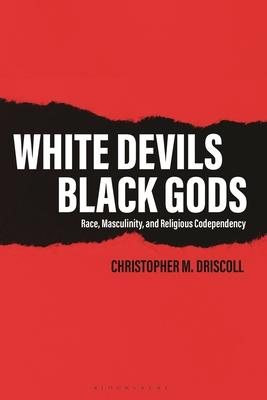Interweaving academic theory, (auto)ethnography, and memoir-styled narrative, Christopher M. Driscoll explores what the "white devil" trope means for understanding and responding to tensions emerging from toxic white masculinity.
The book provides a historical and philosophical account of the "white devil" as it appears in the stories and myths of various black religious and philosophical traditions, particularly as these traditions are expressed through the contemporary cultural expression of hip-hop. Driscoll argues that the trope of the white devil emerges from a self-hatred in many white men that is concealed (and revealed) through various defence mechanisms - principally, anger - and the book provides rich ground to discuss the relationship between perceptions of self (i.e. who we are), emotional regulation, and our behaviour towards others (i.e. how we act).

White Devils, Black Gods: Race, Masculinity, and Religious Codependency
Interweaving academic theory, (auto)ethnography, and memoir-styled narrative, Christopher M. Driscoll explores what the "white devil" trope means for understanding and responding to tensions emerging from toxic white masculinity.
The book provides a historical and philosophical account of the "white devil" as it appears in the stories and myths of various black religious and philosophical traditions, particularly as these traditions are expressed through the contemporary cultural expression of hip-hop. Driscoll argues that the trope of the white devil emerges from a self-hatred in many white men that is concealed (and revealed) through various defence mechanisms - principally, anger - and the book provides rich ground to discuss the relationship between perceptions of self (i.e. who we are), emotional regulation, and our behaviour towards others (i.e. how we act).